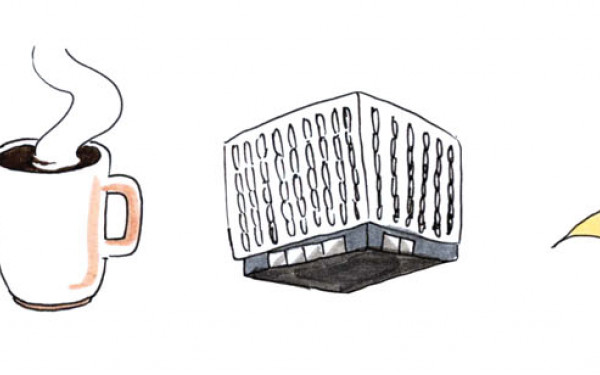CSU Referendum Questions, A Run Down
Non-Hierarchical CSU, Sanctuary Campus and Greenhouse Fee-Levy
Voting for the Concordia Student Union general elections will run from March 28 to 30. There are six referendum questions on this year’s ballot. The CSU represents over 35,000 undergraduate students.
Non-Hierarchical Bylaw Changes
Do you, as a member of the CSU, approve of the by-law changes that will render the executives to a more non-hierarchical structure?
The CSU wants to implement a non-hierarchical structure, so as to ensure that not one executive has more power than another. This process began in the fall of 2015 when, after a similar referendum question during by-elections, the titles of the 8-person executive team were changed from president and vice-presidents to coordinators.
If the question passes, it will be done, in part, by trimming down the description of the General Coordinator’s duties in the CSU’s bylaws, explained Sustainability Coordinator Lana Galbraith. As a result, all descriptions will be about the same length, thereby not implying that one position is more important than the other. She also explained that this will be furthered by placing them in alphabetical order, so that there would be no perceived order of importance.

The other major change, Galbraith noted, is in the decree. What is currently the president’s decree will be changed to the executive’s decree. As it stands now, the general coordinator has the ability to act immediately when something comes up by issuing a decree, without it having to go through council first, she continued. With the changes, it would be mandatory for at least three other executives to sign onto the decree first.
“It reinforces the idea that you need to discuss things and it reinforces the idea that you need a consensus on things,” said Galbraith.
Dish Project Fee-Levy
Do you as a member of the CSU approve the transfer of $0.04 from the Student Space Accessible Education and Legal Contingency (SSAELC) fee to the CSU Operating fee to pay for the operations of the Dish Project, a student-run service at Concordia that provides free dishware to student and community-run events?
The Dish Project is currently a subsidiary of Sustainable Concordia, but the group’s budget can’t sustain it for much longer. They provide free dishes and cutlery for faculty, clubs, administration, and student associations who organize events on campus.

The CSU is stepping up to the plate to help provide the Dish Project with funds. If this question passes, they will take some funds from their Student Space Accessible Education and Legal Contingency, and transfer the funds to their operating budget, said Marcus Peters, current Loyola Coordinator of the CSU.
Peters said through working with the CSU, the Dish Project will be better able to advertise their services around the school. They hope to also pay for the salary of another dish coordinator. Right now only one dish coordinator is working.
Fight for a Sanctuary Campus
Do you, as a Concordia undergraduate student, support Concordia University formally adopting a “Sanctuary Campus” status by not collaborating with the Canadian Border Services Agency (CBSA), including but not limited to the sharing of any information on its current and past staff, faculty and students, or allowing CBSA on its premises, in order to protect undocumented community members from threat of deportation?
Montreal Mayor Denis Coderre recently dubbed Montreal a “sanctuary city.” To be a sanctuary city is to end municipal collaboration between local police and border services.
But activists, like Jaggi Singh from Solidarity Across Borders, have called Coderre out by saying it is largely symbolic as it does not give migrants access to municipal services, and maintains collaboration with the Canada Border Services Agency, he said.

In reaction to this, the CSU is hoping that Concordia can become a sanctuary campus. They want to make sure no student, faculty member, or Concordia staff is at risk of deportation. They want Concordia to agree to not collaborate with the CBSA—in other words, end the sharing of any information on its current and past staff, faculty and students, as well as not allowing the CBSA on campus.
“If Montreal is calling itself a sanctuary city, and if Concordia is positioning itself as a welcoming, diverse place for many different kinds of students, we need to actually put pressure on institutions we can put pressure on to make sure that it’s not just talk,” said current CSU General Coordinator Lucinda Marshall-Kiparissis.
Marshall-Kiparissis and Aloyse Muller—the External Affairs and Mobilization Coordinator—are hoping that an official stance from students will give the CSU more leverage when future executives have to start trying to negotiate with the administration.
CUSACorp Bylaw Change
Be it resolved that the following question be passed through referendum at the upcoming CSU Annual Elections, in order to strike Special By-Law C, the Special By-Law pertaining to CUSACORP, from the CSU By-Law. CUSACORP was a subsidiary of the Concordia Student Union (CSU) as defined by Special By- Law C of the CSU By-Laws, it was dissolved in June 2016 and no longer exists. Do you as an undergraduate student approve to remove Special By-Law C from the CSU By-Laws?

CUSACorp used to be a for-profit branch of the CSU that administered Reggie’s, back when the campus bar was part of the CSU. When it became independent, CUSACorp dissolved, because Reggie’s was the only entity that existed within it. Though CUSACorp has effectively been dissolved, the bylaws do not currently reflect that. If this question passes, the bylaws would officially no longer include CUSACorp. CSU Finance coordinator Thomas David-Bashore explained that this is simply housekeeping.
Fee-Levy Reallocation
Do you as a member of the CSU approve of the following reorganization of fees currently levied by the CSU to all undergraduate students, effective for the Fall semester of 2017: A decrease in the CSU Clubs fee of $0.06 per credit, an increase in the CSU operating fee of $0.05 per credit, an increase in the undergraduate Housing and Job Bank (HOJO) fee of $0.03 per credit, an increase in the Advocacy fee of $0.02 per credit, and a decrease in the Student Space Accessible Education and Legal Contingency (SSAELC) fee of $0.04 per credit?
The goal of this question is to reallocate the funds to where they are needed. This will not increase or decrease the fees that students are currently paying.
“We’re [not] proposing an increase in any fee without making up for it with a decrease of another fee,” David-Bashore explained.

David-Bashore explained that the current clubs budget has a projected surplus of nearly $90,000. He said that the clubs weren’t using or planning to use these funds.
With the proposed redistribution, clubs still have a projected surplus, which will likely allow for additional clubs and for current ones to grow.
Sustainable Curriculum
Do you, as a Concordia undergraduate student, mandate the Concordia Student Union to work with the Concordia University Administration towards integrating sustainability and Indigenous studies courses in all undergraduate programs?
If passed, this question would mandate the CSU to seek out ways of having courses on sustainability as well as Indigenous studies for all undergraduate students, according to CSU Sustainability Coordinator Lana Galbraith.
“You can’t talk about sustainability without talking about Indigenous struggles,” Galbraith said.
Specifically, she explained that her successor as Sustainability Coordinator would have the responsibility to push this agenda in various university bodies and groups, such as the Indigenous Directions Leadership Group and Sustainability Advisory Committee.
Currently, the CSU Positions Book mandates them to support sustainable, student-run food initiatives, while there is also an ethics and sustainability policy that states the CSU must “work to improve integration of the concepts of sustainability into the university curriculum.”

Galbraith said these existing policies could just mean that the CSU just wants a standalone sustainability major rather than finding ways for all students to have the topic included in their curriculum.
“This is more direct that says ‘No, all students should learn about sustainability,’” she explained.
In regards to integrating Indigenous studies into all programs, the CSU does not have an official policy endorsing that yet. Galbraith acknowledged that to incorporate these two topics into all curricula would be a big ask for the university administration. She cited the engineering program as an example of a curriculum that has more restrictions on the number of electives students can take.
Concordia undergraduate students have formally expressed interest in incorporating sustainability into all programs before. In November 2014, the second-ever gathering of the Student Congress voted to have the topic integrated into all curriculum.
Greenhouse Fee-Levy
Do you agree to increase the fee levy of the Concordia Greenhouse by 12 cents per credit to a total of 24 cents per credit, effective Fall 2017?
The Concordia Greenhouse, which is located on the 13th floor of the Hall building downtown, is asking to double its $0.12 fee-levy. This is the first fee-levy increase they’ve asked for since Concordia students approved their first one in March 2013.
One of the main reasons for the increase is to cover the costs for renovations. The ventilation system is failing, and the glass envelope of the greenhouse needs to be changed.
“There’s actually never been any work done on the infrastructure in its 51 year history so things are starting to fail,” said Andrea Reichert, the Greenhouse’s Financial Coordinator.

She added that a failing ventilation system can cause thermometers to be inaccurate, and when left unchecked or unfixed, can create unhealthy temperatures for the plants.
Renovations would cost about $240,000 according to the Four Seasons Growing Coordinator and City Farm School Co-coordinator, Andrew Alford. He also said that the Greenhouse would split the bill in half with the university.
The Greenhouse’s growing programs are another reason for their bid to increase their fee-levy.
“Our program is expanding. We’re on track to doing over 100 events, just over one semester,” Alford said. “We also have more connected educational opportunities with the City Farm School.”
The City Farm School is a group that provides learning opportunities and workshops on urban agriculture located on Loyola Campus. The greenhouse currently provides bursaries for students that want to intern with the City Farm School. If the fee-levy increase is approved, they would be able to provide full scholarships.
In its current 2016-2017 fiscal year, the greenhouse received $85,000 in revenues from the fee-levy. Their revenues in total, including money received from grants are $197,394, and their total expenses are $193, 331.
The Greenhouse looked at getting a lump sum from the CSU to pay for the renovations, but instead opted to look at a fee-levy increase because it “is about so more much more than addressing the infrastructure needs,” according to Reichert.





